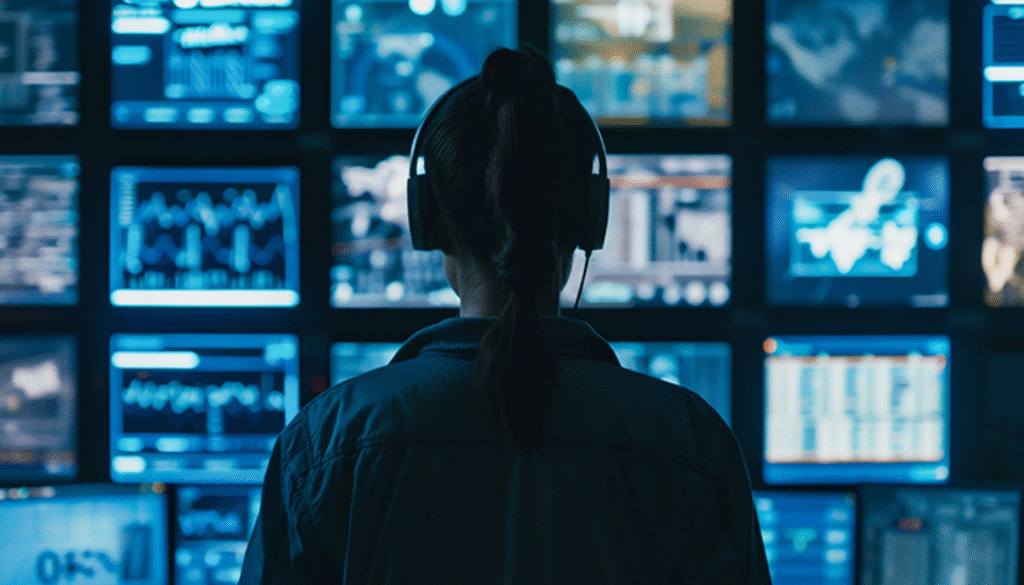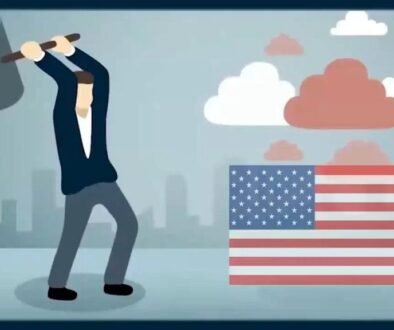The USA PATRIOT Act: Its Origins, Provisions, and Detrimental Impact on Public Trust
This report provides an exhaustive analysis of the USA PATRIOT Act, detailing its inception, the key provisions that significantly expanded government authority, and the consequent detrimental effects these measures have had on civil liberties and public trust in government. Emphasis is placed on the historical context that led to its enactment, its controversial powers in surveillance and law enforcement, and the lasting impact on societal confidence in governmental institutions.
Introduction
In the wake of the September 11, 2001 terrorist attacks, the United States government enacted sweeping legislation aimed at combating terrorism. The resultant USA PATRIOT Act – formally known as the “Uniting and Strengthening America by Providing Appropriate Tools Required to Intercept and Obstruct Terrorism Act of 2001” – represented a paradigm shift in national security policy, prioritizing expansive surveillance and investigative measures. While the law was initially lauded for its role in preventing further terrorist threats, growing evidence over time has revealed significant adverse effects on civil liberties, privacy rights, and overall public trust in government.
Historical Context and Legislative Intent
Post-9/11 Environment
The September 11 attacks, which resulted in nearly 3,000 deaths and unprecedented destruction to iconic structures such as the World Trade Center and the Pentagon, exposed critical vulnerabilities in U.S. intelligence and law enforcement capabilities. This crisis fostered a climate of urgency, where national security imperatives overshadowed established norms governing privacy and individual freedoms. In an atmosphere marked by fear and the demand for decisive action, the Bush administration rapidly championed the USA PATRIOT Act as a necessary tool to mitigate perceived threats from both international terrorists and domestic radical elements.
Motivations and Security Concerns
The legislative intent behind the Act stemmed from a critical assessment of the shortcomings in pre-9/11 security measures, including:
- The inability of traditional laws to address the dynamic challenges posed by globally networked terrorist organizations such as al-Qaeda.
- The necessity for enhanced surveillance capabilities to intercept communications and track financial transactions linked to terrorism.
- A desire to improve interagency cooperation by breaking down barriers that hindered the effective sharing of intelligence between law enforcement and security agencies.
The Act was conceived as a proactive response aimed at preempting future attacks by radically expanding governmental power. However, rapid enactment under bipartisan support also meant that safeguards to protect constitutional rights were often secondary to immediate security concerns.
Key Provisions and Expanded Government Powers
Enhanced Surveillance Authorities
One of the Act’s most significant shifts was in the realm of surveillance. Provisions such as Section 215 empowered federal agencies to obtain “any tangible things” from third parties—from financial records to internet usage data—pertaining to terrorism or foreign intelligence investigations. These orders, often accompanied by gag provisions, instituted a framework where individual privacy could be subordinated to expansive governmental objectives. Similarly, Section 213 introduced “sneak and peek” warrants, allowing law enforcement to search premises with delayed notification to the affected parties, thereby circumventing standard notice requirements enshrined in traditional search procedures.
Roving Wiretaps and Data Collection
The authority to deploy roving wiretaps marked another departure from prior legal standards. Instead of tying surveillance to a particular device, law enforcement could now target individuals across all devices, a flexibility that raised substantial Fourth Amendment concerns. Additionally, the Act authorized the extensive collection of metadata from telephonic and digital communications, a practice that laid the groundwork for bulk data collection programs later exposed in the Snowden disclosures.
Expanded Law Enforcement and Information Sharing Powers
The Act not only broadened surveillance but also redefined law enforcement methodologies. Nationwide search warrants – effective across all U.S. jurisdictions – and relaxed thresholds for Foreign Intelligence Surveillance Act (FISA) orders underscored a legislative shift favoring security operations over strict adherence to due process norms. Furthermore, measures that facilitated the sharing of intelligence among federal, state, and local authorities were intended to combat fragmented counterterrorism efforts; yet, they simultaneously diluted the historical checks and balances inherent in the U.S. legal system.
Detrimental Effects on Civil Liberties and Society
Erosion of Privacy
The expansion of surveillance capabilities under the USA PATRIOT Act has precipitated widespread concerns over privacy infringement. The collection of vast amounts of personal data – ranging from internet browsing habits to library records – without individualized suspicion or rigorous judicial oversight, undermines the Fourth Amendment protection against unreasonable searches and seizures. This normalization of invasive data collection has not only disrupted traditional expectations of privacy but has also instilled a pervasive sense of vulnerability among citizens.
Chilling Effect on Free Expression and Association
The use of gag orders, which accompany many of the Act’s surveillance provisions, has a marked chilling effect on political and social speech. Individuals and organizations compelled to comply with secretive data requests are often legally restrained from disclosing such instances, thereby curbing public discourse on government practices. Moreover, the broad definitions used to penalize any support for terrorism have, in certain instances, criminalized legitimate expressions of political dissent and religious practice. The resultant self-censorship and withdrawal from public debate exemplify how the Act has stifled free speech.
Impact on Due Process and Individual Rights
Beyond privacy concerns, the Act’s allowance for practices such as indefinite detention of non-citizens under terrorism suspicions without access to legal counsel or a formal judicial process poses serious due process challenges. Such provisions run counter to the fundamental principles of the Fifth Amendment and have fostered an environment in which individual rights are routinely subordinated to abstract national security objectives.
Government Overreach
The broad and often ambiguous language of the Act has provided fertile ground for government overreach. Cases that involve the misuse of National Security Letters illustrate how agencies can bypass traditional legal procedures, leading to practices that erode both civil liberties and public accountability. This concentration of power within the executive branch – with minimal checks by the judiciary or legislative oversight – has set precedents that continue to reverberate through subsequent security legislation.

The FBI conducting over 200,000 “backdoor searches” often unrelated to national security, per the 2023 ODNI report and Privacy and Civil Liberties Oversight Board findings. Additionally, over 100 million Americans’ facial data are in law enforcement databases, with real-time surveillance in major cities scanning thousands daily, according to 2021 NIST and 2023 Georgetown Law studies
Impact on Public Trust in Government
Shifts in Public Opinion
Initially, the USA PATRIOT Act enjoyed widespread public support as a pragmatic response to an existential threat. Early polling indicated that many Americans were willing to accept trade-offs between individual rights and national security. However, as stories emerged of warrantless searches, secret surveillance programs, and the misuse of government powers, public opinion began to shift dramatically. Over the years, multiple polls have documented a persistent division among citizens; while a portion still acknowledges the necessity of strong counterterrorism measures, a significant number view these same measures as an infringement on civil liberties.
Partisan Divides and Declining Trust
Research by the Pew Research Center has shown a notable partisan divide regarding the Act’s validity, with initial skepticism among certain voting blocs evolving into long-standing distrust of governmental practices. Concurrently, a gradual yet steady decline in overall trust in the federal government has been observed; by 2024 only around 23 percent of Americans reported confidence in their government’s transparency and accountability. Experts posit that the legacy of the PATRIOT Act – marked by its invasive surveillance programs and perceived disregard for constitutional safeguards – has contributed significantly to this erosion of confidence.
Media Influence and Transparency Concerns
Media coverage of the PATRIOT Act has evolved from endorsing its wartime necessity to critiquing its overreaching implications. Investigative reports have increasingly highlighted instances of abuse and the long-term societal costs of unchecked surveillance, thus influencing public sentiment. The persistent cloak of secrecy surrounding many of the Act’s implementation measures has only deepened public skepticism, fueling concerns that governmental operations are conducted without adequate oversight or accountability.
Notable Case Studies Illustrating Detrimental Effects
The Brandon Mayfield Incident
In one of the most cited examples, attorney Brandon Mayfield was wrongfully implicated in the Madrid train bombings after the FBI mistakenly matched his fingerprints to evidence at the bombing site. The case, marked by secret searches and prolonged legal battles, not only spotlighted the risks of misidentification and racial profiling but also raised alarms over the indiscriminate use of surveillance powers sanctioned by the Act.
Misuse of National Security Letters
Instances involving the excessive use of National Security Letters (NSLs) have underscored the potential for governmental overreach. In several documented cases, NSLs were issued without proper judicial scrutiny, leading to coercive demands for private information. Judicial reviews have at times determined that such practices contravene the constitutional rights to privacy and free speech, thus illustrating the tangible legal and societal costs of the Act’s unchecked provisions.
Sami al-Hussayen and the Criminalization of Association
Another example involves Sami al-Hussayen, whose involvement in an online Islamic community led to charges under the Act for allegedly providing support to a terrorist organization. Although the charges ultimately did not result in a conviction, the case raised profound concerns about the scope of the Act in criminalizing free expression and association, particularly among minority and politically active groups. Such incidents have contributed to an atmosphere of fear, compelling individuals to self-censor and withdraw from civil engagement.
Mass Data Collection Programs
Revelations brought to light by whistleblowers regarding mass data collection programs have dramatically shifted public perceptions. The systematic gathering of metadata – encompassing phone calls, emails, and online activities – has painted a picture of a surveillance state operating with minimal transparency. This normalization of mass surveillance, justified by national security imperatives, has left an indelible mark on the collective psyche, fostering widespread distrust of governmental intentions.
Indefinite Detention Policies
The allowance for indefinite detention of non-citizens suspected of terrorism, frequently executed without formal charges or legal recourse, remains one of the most disturbing aspects of the Act. The human costs of such detention practices, particularly within immigrant communities, have been profound, prompting widespread condemnation from civil liberties organizations and human rights advocates. These practices further underscore the Act’s legacy of undermining due process and eroding public confidence.
Synthesis and Future Considerations
The USA PATRIOT Act exemplifies the enduring conflict between national security imperatives and civil liberties. While the Act was born out of an immediate need to respond to the unprecedented threat posed by terrorism, its expansive provisions – from unchecked surveillance to indefinite detention – have engendered lasting harm to individual rights and the democratic fabric of society. Public trust in government has been severely impacted by these measures, as evidenced by mounting skepticism, partisan divides, and a pervasive sense of vulnerability among citizens.
Looking forward, the legacy of the PATRIOT Act necessitates a critical reassessment of legislative approaches to security. Robust frameworks that meticulously balance the imperatives of national defense with the preservation of constitutional freedoms are essential. Enhanced oversight mechanisms, greater transparency, and a renewed commitment to checks and balances must be prioritized in the formulation of future counterterrorism legislation.
Conclusion
The USA PATRIOT Act stands as a transformative yet profoundly controversial piece of legislation. Conceived in the crucible of national crisis, it redefined governmental power by expanding surveillance, law enforcement, and data collection capabilities. However, the Act’s legacy is intrinsically linked to its detrimental impact on civil liberties, stemming from compromised privacy rights, a chilling effect on free expression, and alarming instances of governmental overreach. The resultant erosion of public trust in governmental institutions serves as a stark reminder that the pursuit of security must never come at the expense of individual freedoms and democratic accountability. As debates over national security continue to evolve, the lessons of the PATRIOT Act remain critical for ensuring that future policies safeguard not only the safety of the nation but also the rights and trust of its citizens.
References
Britannica. (n.d.). USA PATRIOT Act. Retrieved from https://www.britannica.com/topic/USA-PATRIOT-Act
History.com. (n.d.). The Patriot Act. Retrieved from https://www.history.com/articles/patriot-act
Pew Research Center. (2011). Public Remains Divided Over the Patriot Act. Retrieved from https://www.pewresearch.org/politics/2011/02/15/public-remains-divided-over-the-patriot-act/
ACLU. (n.d.). Surveillance under the USA PATRIOT Act. Retrieved from https://www.aclu.org/documents/surveillance-under-usapatriot-act
Electronic Frontier Foundation (EFF). (n.d.). Analysis of Provisions of the USA PATRIOT Act. Retrieved from https://www.eff.org/deeplinks/2003/10/eff-analysis-provisions-usa-patriot-act
Fordham Urban Law Journal. (n.d.). Various Analyses on the Impacts of the PATRIOT Act.
Common Dreams. (n.d.). Discussions on the PATRIOT Act and its Constitutional Implications.
Partnership for Public Service. (2024). State of Trust in Government 2024. Retrieved from https://ourpublicservice.org/publications/state-of-trust-in-government-2024/
Tufts Public Opinion Lab. (n.d.). Debates over New Counterterrorism Measures. Retrieved from https://tufts-pol.medium.com/americans-do-not-want-a-new-patriot-act-but-opinions-differ-by-party-bf481ea2f1f7
The evidence and examples presented herein underscore that while the USA PATRIOT Act was designed to protect national security, its enduring impact on civil liberties and public trust necessitates a continuous and vigilant reassessment of governmental authority in a democratic society.




